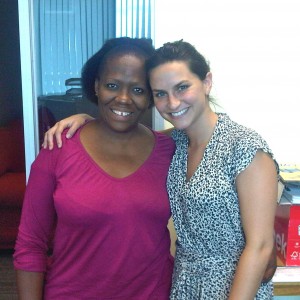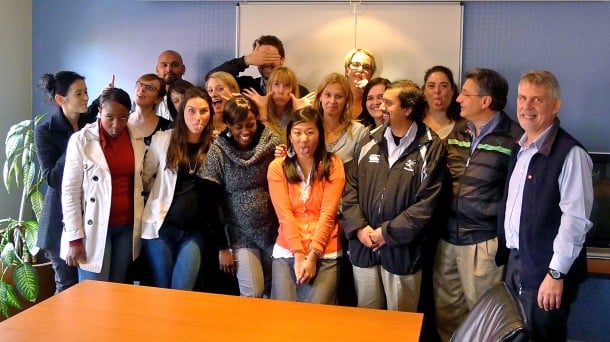When I tell people that I live in South Africa and work on an HIV/AIDS initiative, they usually picture me doing pseudo-missionary work, toiling away in orphanages saving sick babies.
In reality, my average day consists of conference calls, meetings, and spreadsheets. I have hot water and electricity, I can access the Internet (well, most of the time), and there’s a sushi restaurant on my block. And, much to the surprise of my friends, I wear a skirt and high heels to work.
But despite these familiar comforts, adjusting to a foreign professional environment isn’t without its challenges, and I certainly learned some unexpected lessons along the way.
A New Set of Norms
As a foreigner, you’ll have a different way of doing things and you’ll need to adapt to a new set of norms. In my situation, that included everything from understanding the importance of greetings and proper titles to grasping the social and political complexities around HIV/AIDS.
One of the main adjustments was learning to establish strong relationships with my South African colleagues before diving into work. As an American—and a New Yorker, at that—I have a tendency to want to get right to business. But in South Africa, interpersonal relationships and respect are given the highest importance—they’re valued above efficiency, and must be established before anything else. Taking the time to properly greet someone and ask how he or she is doing is not an option; it’s a necessity.
It’s not easy to walk the fine line between efficiency and diplomacy, and there isn’t an easy formula for finding the balance. It takes patience, on-the-spot tact, diplomacy, and most of all, time.
Picking Your Battles
Take “Africa time,” for example. I’ve come to accept that a 9 AM meeting here will almost always start some time after 9:30. But the game changed when there were other foreign individuals involved. When one South African colleague repeatedly showed up late to meetings of a task team that I was leading, I started receiving complaints from other non-South African participants (one e-mail read: “is he kidding?”). While I had come to understand “Africa time,” representatives from other international organizations did not, and we needed them to be happy in order for us to make progress as a team.
Ultimately, I decided to focus on what we were actually trying to achieve, and assess what might stand in the way of that. As uncomfortable as I felt raising the issue, I confronted my colleague about his recurring lateness, which was making it increasingly difficult for team members to take the work seriously. The conversation was slightly painful and he wasn’t thrilled, but he was never late to a meeting after that.
Remembering the Big Picture
 As an American working abroad, you will inevitably come across a skeptical few who will wonder why you are there and what you plan to do. A few times, I even found myself wondering the same thing. (I believe it was the 15-minute opening prayer at one of the first meetings I attended that clued me into the fact that I was not in Kansas anymore.)
As an American working abroad, you will inevitably come across a skeptical few who will wonder why you are there and what you plan to do. A few times, I even found myself wondering the same thing. (I believe it was the 15-minute opening prayer at one of the first meetings I attended that clued me into the fact that I was not in Kansas anymore.)
The danger of job frustration while working abroad is that it can easily tailspin into a bout of homesickness and second-guessing your decision to move. In those instances, I found it helpful to remember the big picture and why I was there to begin with. If you’ve moved to another country for work and sacrificed your life at home, you undoubtedly have an underlying passion. It’s easy to lose sight of that passion when you’re homesick, confused, and facing a pile of Excel spreadsheets and unanswered e-mails. But it’s essential to reconnect with every now and then.
For me, it helped to take things with a grain of salt, choose to laugh instead of cry, and celebrate small achievements rather than beat myself up about not solving HIV/AIDS in South Africa. The past year has had its share of culture shock and frustrations, but the tough moments are outweighed by the rewarding ones—the moments when I remember that, at the end of the day, there is not that much that differentiates us as human beings.
After all, we do all originate from the same African ancestors, who I am fairly certain operated most blissfully on “Africa time.”



